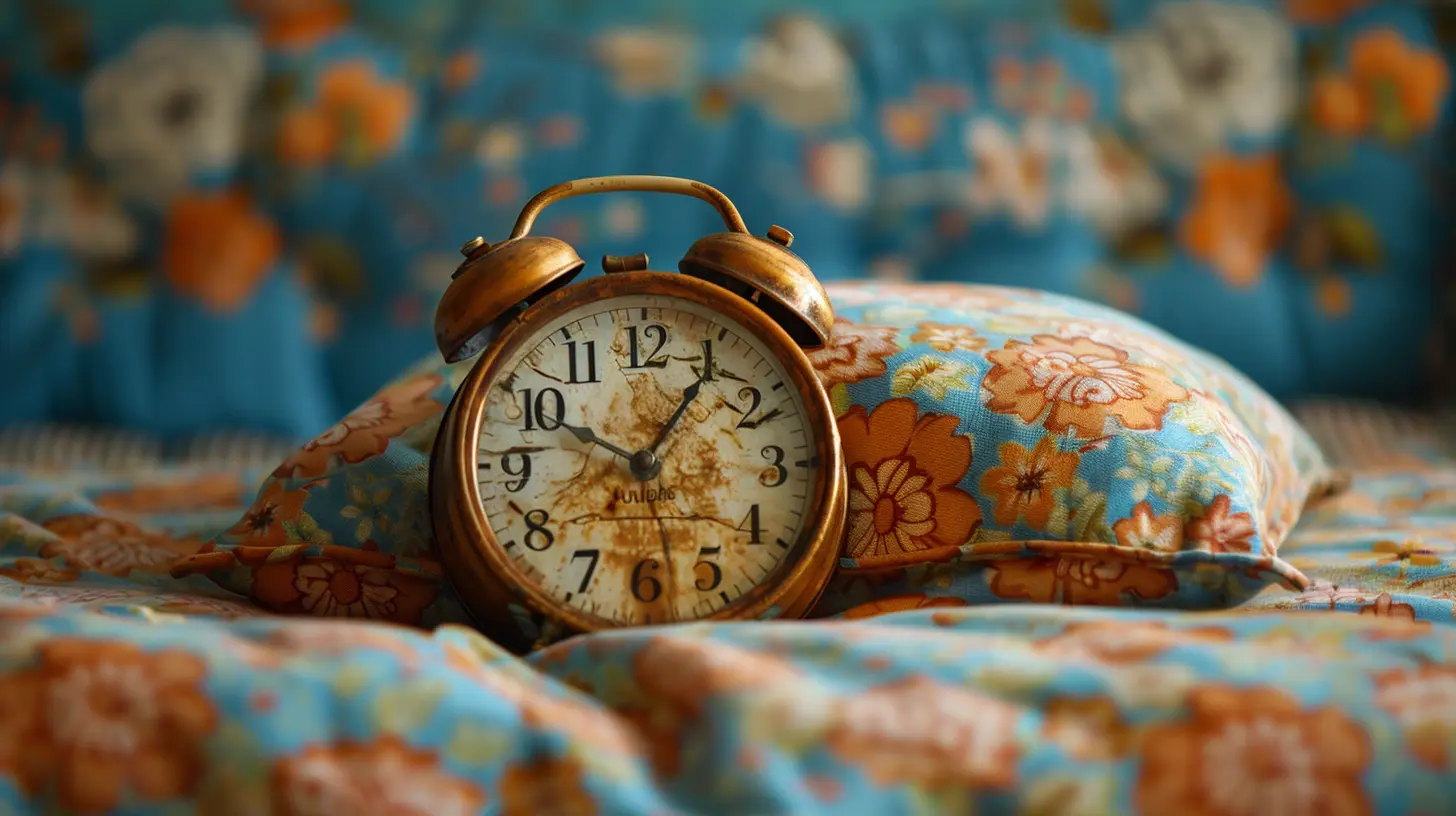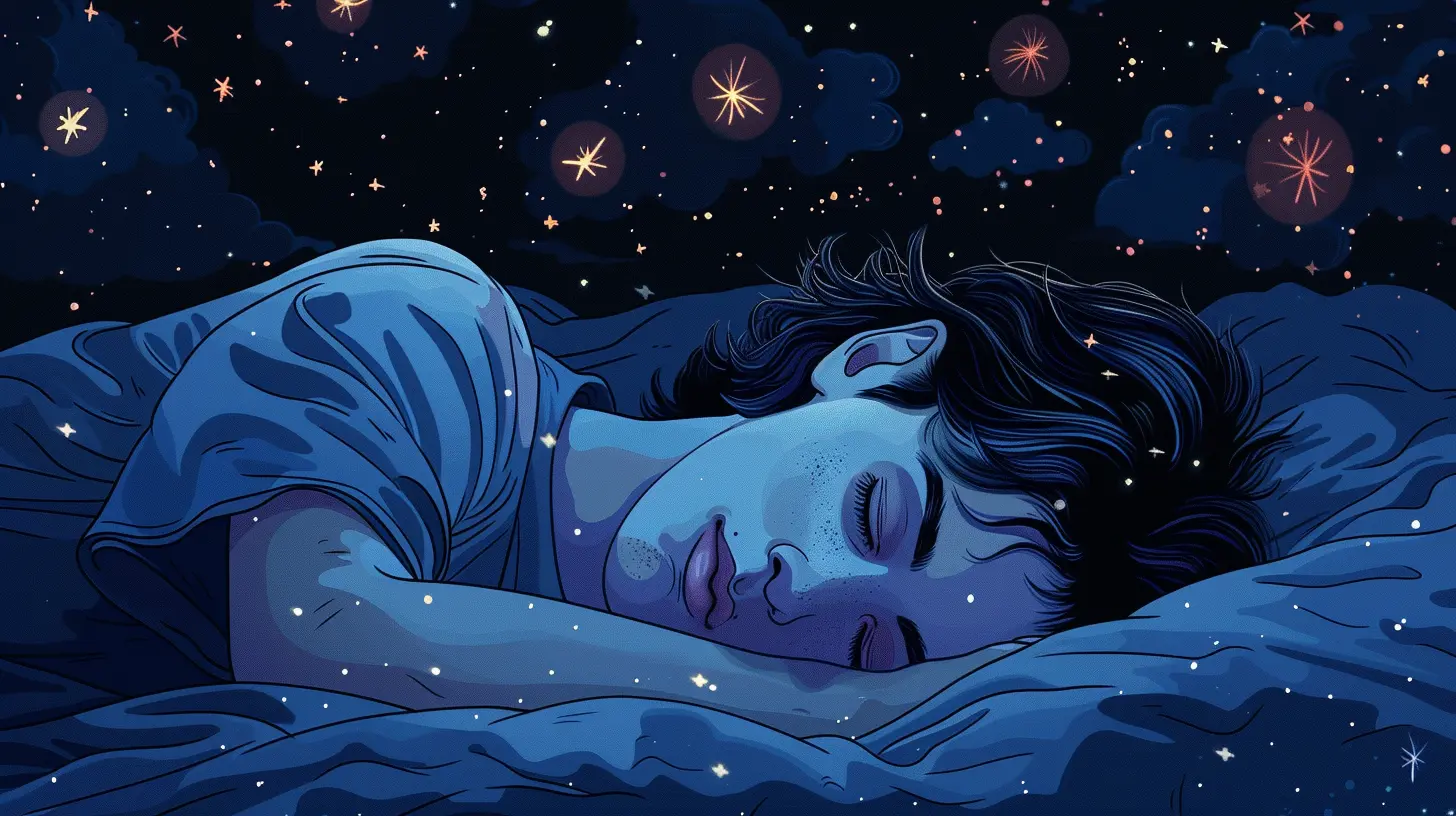How Much Sleep Do You Really Need? Finding Your Ideal
12 July 2025
We all know sleep is important, right? But have you ever tossed and turned, staring at your ceiling, wondering if you're getting too little sleep… or maybe even too much? We all say we need our “eight hours”, but is that some magic number, or just a myth passed down like bedtime stories?
Let’s pull back the sheets and really dig in. What if everything you think you know about sleep is just—well—a dream?
Sleep: The Mysterious Medicine We All Forget We Need
Sleep is like this secret superpower. It heals, restores, and reboots your body—kind of like how your phone needs to be charged overnight (unless you enjoy waking up to a 2% battery and panic).Without it, your brain gets foggy, your moods swing like a wrecking ball, and your focus? Total goner. So why is it that even though we know it’s essential, we still treat sleep like an optional luxury?
Let’s break this down—because the real question isn't just "how much sleep do you need?" but "how much sleep do you need?"
The Myth of the “Magic 8 Hours”
Raise your hand if you’ve heard this before: “You should sleep 8 hours a night.”Yeah, we all have. But here’s the thing—sleep isn’t one-size-fits-all. That 8-hour guideline? It’s more like a ballpark, not some strict rule etched in stone tablets.
Think about it: would you wear the same pair of jeans as your grandma? Or eat the same breakfast as a pro athlete every day? Probably not. So why would you follow a generic sleep rule when your lifestyle, body, and mind are uniquely yours?
Where Did the 8-Hour Rule Come From, Anyway?
The “8 hours” idea came from a mix of historical patterns, productivity goals during the Industrial Revolution, and early sleep studies. But the science of sleep has evolved. We now know sleep needs vary wildly depending on:- Age
- Lifestyle
- Genetics
- Stress levels
- Health conditions
- And even your sleep quality (not just duration)
So, it’s not just about how much you sleep—it’s about how well you sleep.
Sleep Needs by Age: The Broad Guidelines
Still, it helps to have a general sense of what’s normal. Here’s a quick breakdown by age:| Age Group | Recommended Sleep |
|-----------|-------------------|
| Newborns (0–3 months) | 14–17 hours (wow!) |
| Infants (4–11 months) | 12–15 hours |
| Toddlers (1–2 years) | 11–14 hours |
| Preschoolers (3–5 years) | 10–13 hours |
| Children (6–13 years) | 9–11 hours |
| Teens (14–17 years) | 8–10 hours |
| Adults (18–64 years) | 7–9 hours |
| Older Adults (65+ years) | 7–8 hours |
But again—these are just general ranges. You might feel like an absolute troll on 7 hours or be bouncing off the walls on 6. Your perfect sleep “sweet spot” is as personal as your Netflix queue.
Signs You’re Not Getting Enough Sleep (Hint: It’s Not Just Yawning)
Let’s say you think you’re doing fine on 6 hours—but how fine are you really? Your body sends signals. It whispers at first. If you don’t listen, it shouts.Here are some not-so-obvious signs your body is begging for more shut-eye:
- You wake up feeling like you survived a boxing match
- You crash mid-day and reach for caffeine like it’s oxygen
- You can’t focus, like, at all
- Your memory's so sketchy it’s like Swiss cheese
- You’re quick to snap or feel weirdly emotional
- Your skin looks dull or you break out randomly
- You crave junk food like you’re pregnant with triplets
Sound familiar? Yup. That’s your body waving a red flag.
Quality vs. Quantity: Sleep’s Not Just About the Clock
Imagine you sleep 9 hours but wake up feeling exhausted. Meanwhile, your friend sleeps 6.5 and feels amazing. What gives?This is where sleep quality enters the chat.
Enter: The Sleep Cycle
Your sleep moves through several stages—from light sleep to deep, restorative sleep, and then REM (dreamland). A complete cycle takes about 90 minutes. You pass through multiple cycles a night.Missing out on deeper stages (like slow-wave sleep or REM)? You’ll wake up groggy, no matter how long you were in bed.
What Ruins Sleep Quality?
Sometimes you’re getting "enough" sleep, but the quality is garbage. Here are some usual suspects:- Constant stress or anxiety
- Drinking alcohol or caffeine too late
- Blue light from screens right before bed
- A room that’s too hot, cold, or noisy
- Untreated sleep disorders (looking at you, sleep apnea)
- Inconsistent sleep/wake times (hello, weekend warriors)
So before you blame your mattress or switch pillows again, look at your habits.
Finding Your Sleep Sweet Spot
Now for the gold: figuring out how much sleep YOU actually need.Here’s a simple step-by-step:
1. Start with a Trial Run
Pick a week when you can go to bed and wake up naturally (no alarms). Track how many hours you naturally sleep.You might find it’s 7.5 hours, or 9. Shocking, right?
2. Track How You Feel
Each day, note how you feel:- Do you wake up energized?
- Do you crash mid-day?
- Are you moody or foggy?
Patterns will show up quickly.
3. Adjust by 15 Minutes
Not ready to overhaul your schedule? Start small. Add or subtract 15 minutes of sleep and see how it affects you. Your sweet spot might be super specific—like 7 hours and 45 minutes. (Yes, really.)What If You’re Sleeping Too Much?
Wait… is too much sleep even a thing?Yep—and it comes with its own issues. Oversleeping regularly can be linked to:
- Headaches
- Mental fog
- Increased inflammation
- Risk of chronic diseases like diabetes or heart issues
But here’s the kicker: oversleeping often means your body’s trying to compensate for poor quality sleep or an underlying condition.
So if you’re clocking 10+ hours and still tired, it might be time to chat with a doc.
Quick Tips for Better Sleep (So You Can Wake Up Like a Legend)
Want to get the most bang for your bedtime buck? Try these:💤 Keep a Consistent Schedule
Go to bed and wake up at the same time every day. Yes, even weekends. Sorry, party animals.🕯 Create a Wind-Down Routine
Think of it as a bedtime ritual: dim lights, calming tea, journaling, or reading (no doomscrolling).🛏 Transform Your Room
Cool, quiet, and dark is the holy trinity. Blackout curtains are your new best friend.📵 Ditch the Screens Early
Aim for at least 30-60 minutes of screen-free time before bed. Your brain will thank you.🍷 Curb Caffeine and Alcohol
Cut caffeine by mid-afternoon. And while wine feels relaxing, it wrecks your REM.🧠 Manage Your Mind
Can’t sleep from racing thoughts? Try meditation, deep breaths, or writing down your worries.When To See a Doctor About Your Sleep
If your sleep is constantly off—even with lifestyle changes—it might not be something you can fix on your own.Conditions like insomnia, sleep apnea, restless leg syndrome, and even depression or anxiety can mess with your sleep without you fully realizing it.
If you're constantly battling fatigue, it's worth checking in with a medical professional. You don't have to solve the sleep puzzle alone.
The Sleep Equation: It’s Uniquely Yours
So, how much sleep do you really need?That depends on who you are, what you do, and how your body ticks. Some thrive on 7 hours. Others need a solid 9 to feel human. The goal? Don't chase someone else's sleep formula. Find your own.
Your best life doesn’t start with hustle—it starts with rest. Sleep isn’t a luxury. It’s a biological necessity.
So tonight, when you hit the pillow, remind yourself: you’re not being lazy. You’re recharging. You’re doing one of the most powerful things for your body, brain, and soul.
Sweet dreams.
all images in this post were generated using AI tools
Category:
Sleep DisordersAuthor:

Angelo McGillivray
Discussion
rate this article
1 comments
Katalina Blevins
Sleep is like a superhero cape for your brain—too little, and you’re a sidekick; too much, and you’re just a sleepy sloth! Find your perfect snooze balance!
July 24, 2025 at 3:45 PM

Angelo McGillivray
Absolutely! Finding that sweet spot in sleep is key to unlocking your brain's full potential. Balance is everything!


